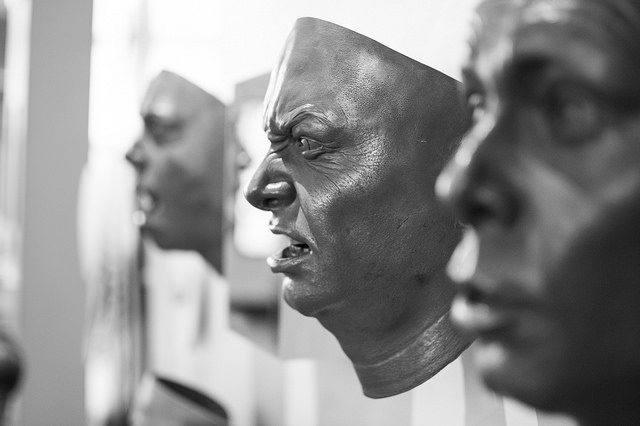Whatever one of us blames in another, each one will find in his own heart. – Seneca
What does that mean?
This is a translator’s version of “And so each man will find in his own breast the fault which he censures in another.” Yet, however one chooses to word it, the blame or fault remains in them, and in us.
While the specific discussion is on how this applies to anger, and how healing is preferred to vengeance, I believe it can be applied to all of our grievances and perceived slights.
It means that none of us are without blame. It means we are all human, and full of faults. How much of humanities time has been wasted contemplating the flaws or errors of others?
How much more could humanity accomplish if that same time was applied to more useful pursuits, like improving oneself, or finding ways to improve the condition of all.
Why is not assigning blame important?
Remembering that the flavor of blame in discussion is a fault or failing in another as in ourselves, it becomes fairly straight forward. With the exception of a hand full of people, we have all lied at some point, even if only as a small child.
With that as a premise, can you with clear conscience call another a liar? Can we blame them for our own faults? Yes, if they speak untruth. But we have done so as well. How can we claim the moral high ground, other than by degree?
Was someone mean to you? Rather than plot how to be mean back, consider if you have been mean to them at some time prior. How long has this cycle been going on, and you only now noticed? Even if they have drawn first blood, what is to be gained by continuing?
Consider the plight of Romeo and Juliet, and how in the Shakespeare play, violence beget more violence, until there were no other options for the young lovers. Of course we’ll never go that far, right? But how do we know the breaking point of another? Best not to start than pull back too late.
Where can I apply this in my life?
I’ll start the ball rolling with my favorite pet peeve, bad drivers. But what defines bad drivers, other than they don’t drive in a way which we desire? On some days, it may be going too slow, others going too fast. I’m sure, despite my “great” talent, I’m sure I’ve annoyed others who’s desires were different from mine.
Can I call them bad drivers, when in their eyes, I’m the bad driver? Not with a clear conscience, but in the heat of the moment, I sometimes do. Note that this is not a race to the bottom, or saying that because they’re bad, I can be bad. It’s about recognizing that we are human, and trying to end the cycle of blame and revenge or getting even.
Take a moment and consider the things which annoy you most. Find at least one, but two or three might help better drive the point home. Consider each of these annoyances, and what kind of person would do such a thing. Then take a moment to look back through your life. Can you honestly say you have never done such a thing to another?
Even if you have not, is it possible that you do something which annoys someone else, even though you do not intend to offend? If they were to do something back to you, would you even know what started the feud, or would you simply return their action with one of your own? This is a downward spiral, and we can do better.
While we cannot always directly approach them and resolve the fault or blame, we can give them the benefit of the doubt, and forgive them for what their faults or blame. Given how often people return anger with anger, fault with fault, blame with blame, can you imagine a world where such behavior is rare? How great would that be?
In recognizing our own flaws and failures, we become more sympathetic to the flaws and failures of others. Again, it is not a race to the bottom, using their bad behavior to excuse our own. Instead of looking down, look up. Use it for a chance to bridge the divide which separates us, and to call them brother rather than enemy.
Anger is easy, and forgiveness can be difficult, at least at first. But as you practice forgiveness and step away from anger, which is easier can quickly change. The feud between Montague and Capulet ended with reconciliation, but only after a terrible price was paid. Anger slower, blame slower, be kind sooner and forgive quicker.
From: Twitter, @philo_quotes
confirmed at : Essays on Anger Book III, xxvi.2-xxvii 1 search for “we are all wicked”
photo by Patrik Nygren


Very thoughtful entry. I’m enjoying this blog. Thank you.
Thanks for stopping by, and for taking time to leave a comment.
Glad the post meant something to you.
More rich food for thought.Thanks for this post, it’s a good reminder. It also makes me think of how related many philosophies are. So often the message is very nearly the same, only cultural nuances give them their own twist.
Thanks for stopping by, and for leaving such an interesting comment.
To me, the thing which proves the truth within a quote is when it appears in multiple societies. An idea that has arisen and been accepted in multiple cultures across centuries and continents must have some fundamental truth to it.